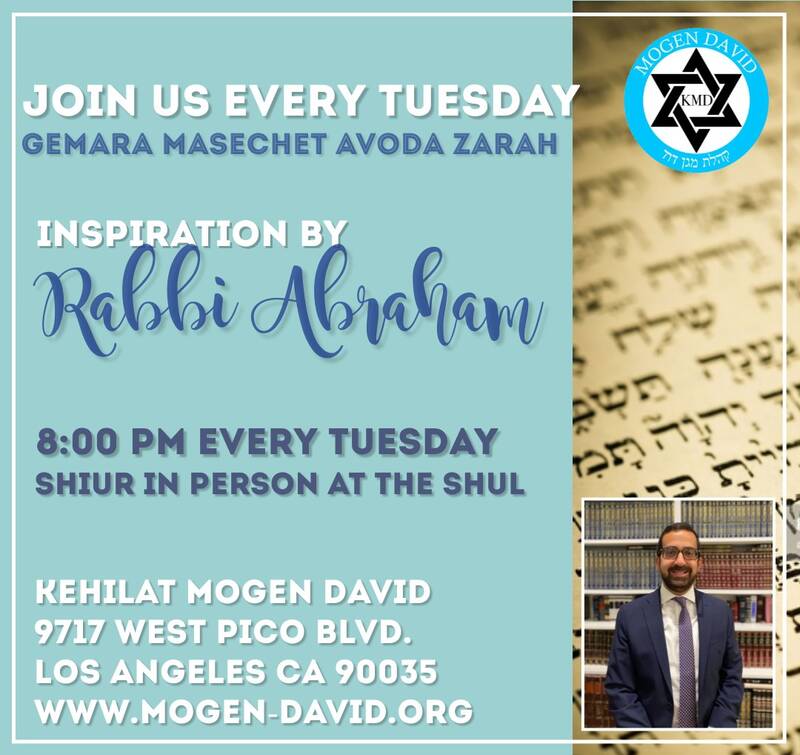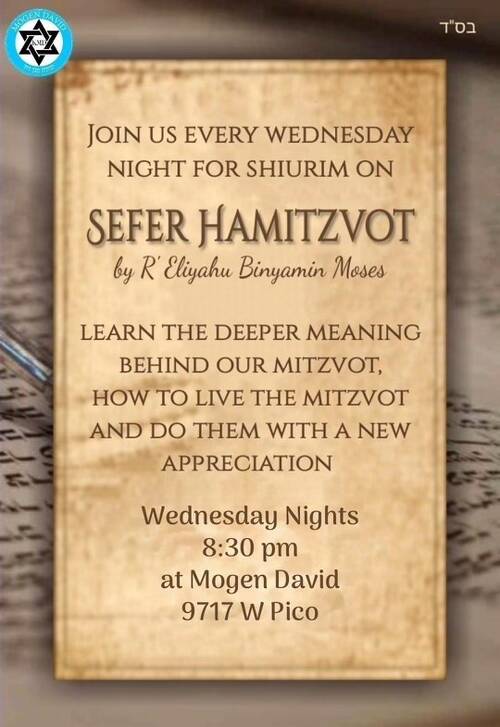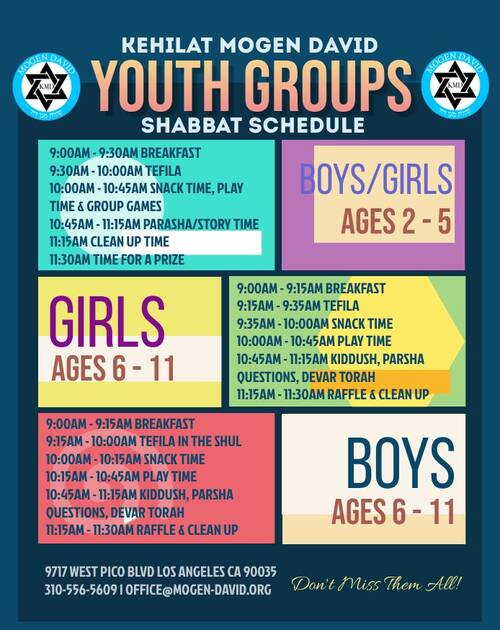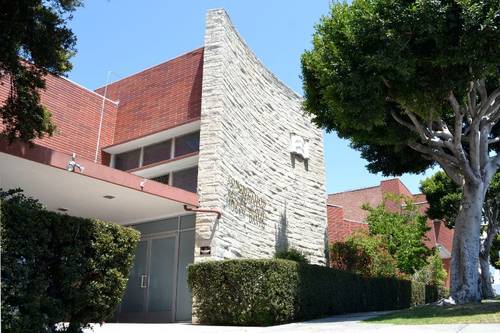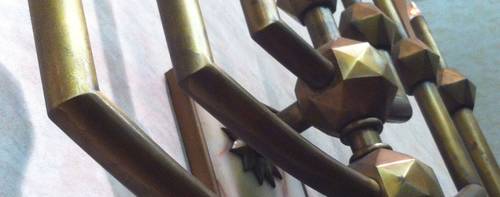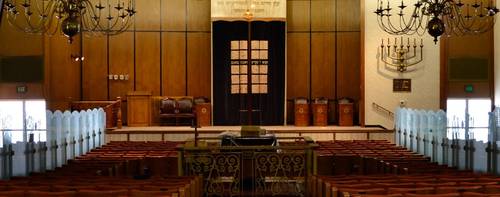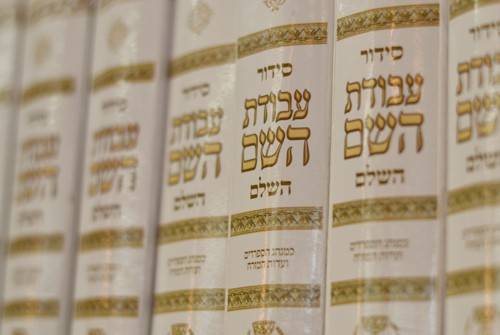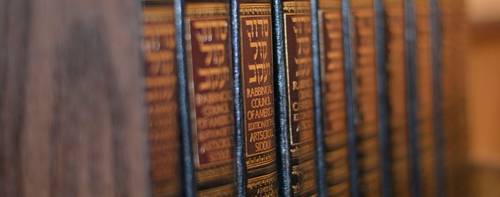Home
MEMBERSHIP PAYMENT
MEMBERSHIP GOOGLE FORM
YPM MEMBERSHIP YEAR 5786
KI TETZE BY ELIYAHU MOSES
A short beautiful idea on Ki Tetze, to uplift and to be shared on your Shabbat table with Friends and family.
Are we concerned about a donkey's thoughts? How important is it to be sensitive? Do tzitzit need to be inside or outside a cemetery?
Shabbat Shalom, Eliyahou Binyamin Moses
SHIURIM & PROGRAMS
RABBI MOSES' WEEKLY MESSAGE
Dear Mogen David Family,
"And Hashem saw that Leah was not loved greatly, and He opened her womb, and Rachel was barren (29:31)." This passage's structure is not parallel. One would expect the pasuk to read "and G-d opened Leah's womb, and closed Rachel's." Furthermore, most women are able to conceive and bear children. One would therefore expect the following: "and Hashem allowed Leah to have children, and He closed Rachel's womb."
Malbim, commenting on this passage, provides an answer that sheds light on a fascinating, often overlooked, aspect of prayer. The Talmud in Yevamot(64a) comments on the reason that many of the Avot and Imahot were barren at first: "R. Yitzchak states: Hakadosh Baruch Hu desires the prayer of the righteous." Hence, according to the original plan, Leah too should have been temporarily barren. But since Hashem wanted to increase the love between Yakov and Leah, he gave her children right away, and changed the "normal," patriarchal procedure. Rachel remained barren according to the original plan until she would pray to G-d. When she finally did, she was granted children.
Perhaps we can gain a deeper insight into tefilla upon further analysis of the idea of Hashem withholding children from the Avot and Imahot until they prayed. Tefilla is called avodah she'belev, Divine service of the heart However, Man does not always turn to G-d unless there is a need. Even with regard to those who do pray regularly, the concentration and fervor invested into the prayer is most definitely intensified by a specific need. Hence, Hashem will often temporarily withhold that which He wishes to bestow upon His creations, in order that the human being first turn to Him in prayer. It is not surprising then, that our great Avot and Imahot were recipients of this aspect of Divine love.
Many Jewish thinkers have asked a twofold question concerning the nature of prayer in general If the supplicant deserves what he is asking for, then why need he beseech G-d for it? If, on the other hand, he is not worthy of receiving his request, then how does prayer help? The approach of Malbim, based on the words of Chachamim, provides a ready answer for the first half of the question. Even if the person deserves a certain divine blessing, G-d waits for the lines of communication to be opened before granting the gift.
A similar approach is offered by Rabbeinu Bechaye on last week's Parashat Toldot. There we read: "And Yitzchak beseeched G-d opposite his wife, for she was barren (25:21)." This passage, too, seems out of order. In describing the sequence of events, a more logical order would have been: "And Rivka, the wife of Yitzchak was barren. [Therefore], Yitzchak prayed to G-d for her." This would indicate the proper sequence of cause and effect. R. Bechaye resolves this difficulty based on the aforementioned concept. G-d desired the prayers of Yitzchak and Rivka; this was the desired result. In order to bring about this goal, He caused Rivkah to be temporarily barren. With this explanation, the passage reads in a perfectly logical order. The goal was Yitzchak's prayer. The means of achieving it was Rivkah's barrenness.
This approach to prayer should serve to allow us to deal more effectively with adversity. If we view the trials of life as demonstrations of Hashem's love for us, we can view them in a more positive light. G-d may often just be waiting for us to turn to Him in prayer, and then He will grant us His abundant blessings.
Shabbat Shalom,
Rabbi Yehuda Moses Rav HaKehillah/Senior Rabbi
Support KMD When You Shop
When you click the link below, you will be given the option to register Congregation Mogen David as your chosen charity to support. Every time you shop, AmazonSmile foundation donates 0.5% of the price of your eligible purchases to the synagogue.
Please note that in order for the synagogue to receive a donation, shopping must be done via smile.amazon.com rather than their regular website.
Our SHUL in Pictures
Fri, November 28 2025
8 Kislev 5786
KEHILAT MOGEN DAVID
IMPORTANT TIMES
PARASHAT VAYETZE
4:26 pm Candle Lighting
5:13 pm Havdalah
SHABBAT SCHEDULE
Please REGISTER if you are attending Shabbat services.
4:15 pm Shir Hashirim
4:30 pm Erev Shabbat Mincha/Arvit
8:45 am Rabbi Moses Parasha
9:00 am Shacharit
4:10 pm Shabbat Mincha/Arvit
Followed by Seudah Shlishit
WEEKLY SCHEDULE
SHACHARIT
8:00 am Sunday
6:20 am Monday, Thursday
6:25 am Tuesday, Wednesday, Friday
MINCHA/ARVIT
4:30 pm Sunday - Thursday
shiurim AT KMD
Rabbi Moses Megila
Monday-Friday at 5:55 am
Rabbi Moses Pele Yoetz
Monday-Thursday at 4:00 pm
Rabbi Moses Women's Parasha
Every Wednesday at 1:00 pm
Rabbi Abraham Avoda Zarah
Monday-Friday at 5:55 am
Rabbi Abraham Shiur
Every Monday after Arvit
Rabbi Abraham Avoda Zarah
Every Tuesday at 8:00 pm
Rabbi Abraham Shiur
Every Wednesday after Arvit
R' Eliyahu Moses Hilchot Shabbat
Every Wednesday at 8:30 pm
R' Eliyahu Moses Sefer Hamitzvot
Every Wednesday at 8:30 pm
Chok L'Yisrael with Mr. Haim Dayan
Sunday-Friday after Shacharit
Zmanim
| Alot Hashachar | 5:21a |
| Earliest Tallit | 5:49a |
| Netz (Sunrise) | 6:35a |
| Latest Shema | 9:21a |
| Zman Tefillah | 10:17a |
| Chatzot (Midday) | 12:08p |
| Mincha Gedola | 12:36p |
| Mincha Ketana | 3:22p |
| Plag HaMincha | 4:31p |
| Shkiah (Sunset) | 5:40p |
| Tzeit Hakochavim | 6:18p |
| More >> | |
Join Our Mailing List
HAPPY ANNIVERSARY
NOVEMBER ANNIVERSARIES
Leon & Jasmine Barkodar
Abraham & Mojgan Kashani
Neil & Rachel Sheff
HAPPY BIRTHDAY
NOVEMBER BIRTHDAYS
James Noah, Stella Noah
Noah Refael, Arie Nahum
Jasmine Barkodar, Tehila Sarir
Alex Mathalon, Matan Shaliehsaboo
Mia Genish, Shifrah Manuel
Noah Yerushalmi, Talia Yonatanov
Jacalyn Shalom, Parham Khorsandi
Ariel Hakham, Eric Abergel
Daniel Maya, Sabrina Eksztajn
Liana Hakham, Shylee Cohen
Rina Bamela, Jaclin Haboosheh
Ella Mathalon, Jacob Jahan
Maya Kelly, Mishael Ashoorzadeh
Michelle Mathalon, John Farhamy
Nellie Javaherian, Max Sheff
Mona Cohen, Daniel Hagay
Daniel Javaherian, Michal Lasry
Gabriel Shraga, Julian Ohayon
Eden Dayan, Aiden Abergel
IN MEMORIAM
NOVEMBER YAHRZEITS
Roben Pakdaman BenAharon
Zev Yehuda Zodieru
Rubin Bird, Trudy Bird
Rose Birdie Safren
Samuel Venouziou, Nadia Krone
Privacy Settings | Privacy Policy | Member Terms
©2025 All rights reserved. Find out more about ShulCloud






